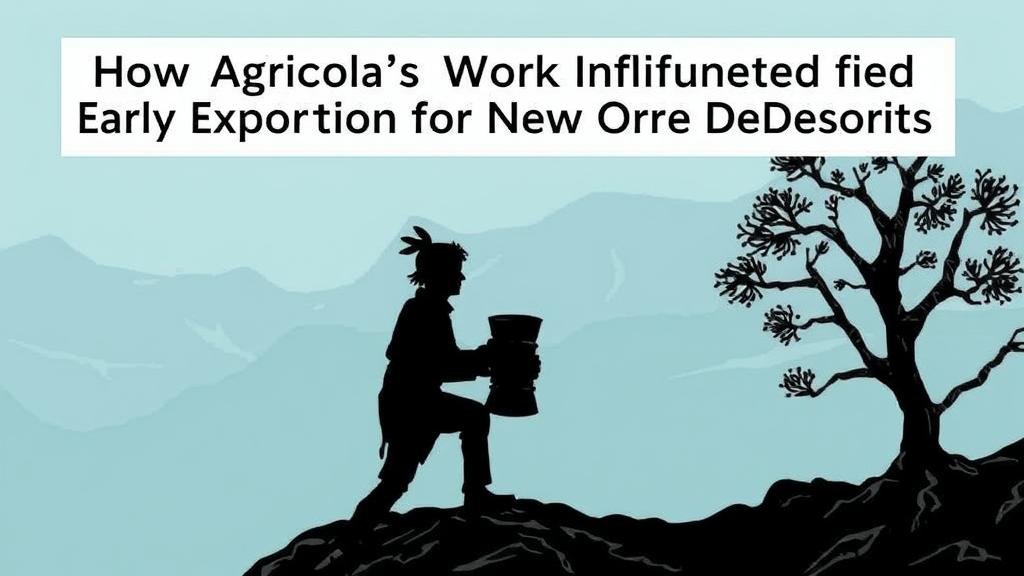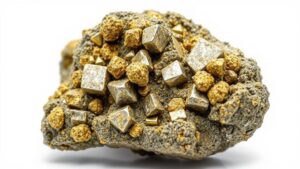How Agricola’s Work Influenced Early Exploration for New Ore Deposits
The Influence of Agricola on Early Exploration for New Ore Deposits
Georgius Agricola, a prominent figure of the Renaissance period, is often hailed as the father of mineralogy. His seminal work, De re metallica, published in 1556, provided a comprehensive overview of mining practices and mineral extraction techniques. This text not only laid the groundwork for future scientific thought in mineralogy but also significantly influenced the exploration for new ore deposits in the early modern period. His methodological approach to the study of mining and metallurgy galvanized explorers and miners, prompting an era of discovery and resource exploitation.
Agricolas Contributions to Mining Science
Agricolas insights into the mining industry were pioneering for several reasons. He meticulously documented various mining techniques, mining tools, and mineral processing methods. His systematic classification of minerals and ores established a framework for understanding geological resources. For example, Agricola described the process of smelting ore and the importance of different types of furnaces, which directly impacted the efficiency and output of mining operations.
- Agricolas emphasis on empirical observation encouraged miners to keep detailed records, shaping modern mining practices.
- His classification system allowed for the identification of minerals that could lead to new discoveries and extraction techniques.
Methodology and Exploration Tactics
One of Agricolas lasting legacies is his methodological approach to exploration. He advocated for thorough examination and testing of mineral resources prior to mining, emphasizing the need for scientific inquiry. This approach dramatically influenced how explorers sought new ore deposits.
Agricolas descriptions of geological formations, alongside the properties of various metals, served as a guide for miners and explorers. For example, he mentioned the connectivity of mineral veins, which led explorers to identify regions with potential for rich deposits based on geological mappings. These methodologies not only expedited the search for new ores but also reduced economic risks associated with unfocused exploration.
Real-World Applications and Economic Impact
The principles propagated by Agricola were not merely theoretical; they had substantial real-world implications. European mining operations in regions such as the Harz Mountains in Germany accelerated after the publication of De re metallica. Agricola’s documentation of practical mining skills was instrumental in refining techniques, leading to increased yield and efficiency in operations.
By the late 16th century, accurate geological mapping and the understanding of mineral deposits had enabled economies to thrive. For example, the discovery of silver in PotosÃ, Bolivia, in the 1540s was partly influenced by the mining knowledge that Agricola and his contemporaries disseminated, resulting in what was termed the Great Silver Boom. This led to immense wealth for Spain and fueled further exploration and exploitation of natural resources in the Americas.
The Legacy of Agricola in Modern Mining
Agricolas work has had a lasting influence on mining and exploration techniques even today. His early emphasis on systematic study and documentation laid the groundwork for modern geological and mining surveys. Contemporary exploration methods, including geophysical and geochemical analysis, can trace their roots back to Agricola’s foundational ideas about understanding the earth’s resources.
Today, mining companies utilize comprehensive geological surveys similar to Agricola’s empirically-based approaches, ensuring that exploration is informed by scientific data. This has not only improved resource extraction but has also initiated practices for sustainable mining and responsible resource management.
Conclusion: Key Takeaways
Georgius Agricola’s work had a monumental influence on the exploration and extraction of mineral resources, bridging the gap between empirical observation and systematic study. His principles continue to shape modern mining and exploration efforts.
- Understanding his methodologies can lead to advances in resource extraction and exploration techniques.
- Agricola’s emphasis on empirical data underscores the importance of scientific inquiry in resource management.
For scholars and practitioners in the field, Agricolas work serves as a reminder of the importance of historical context in the evolution of mining practices and the ongoing quest for new ore deposits globally.



